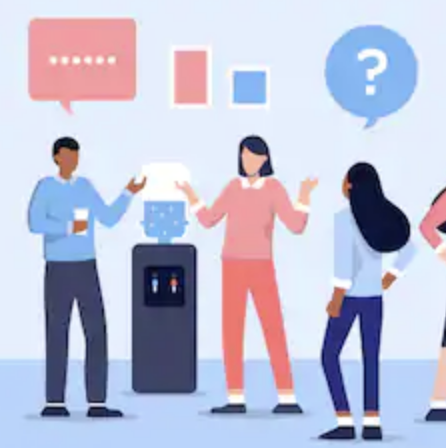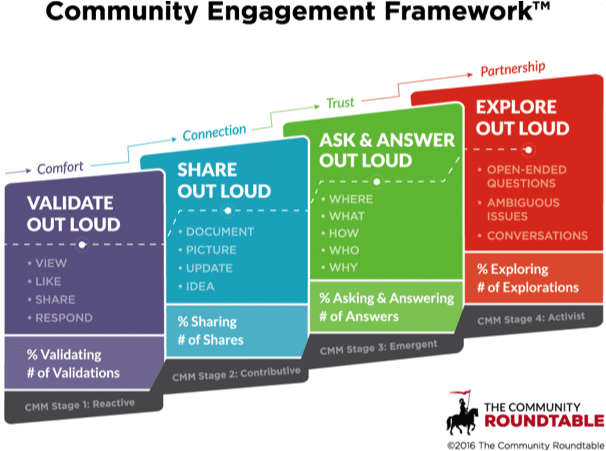In a world where most offices are suddenly remote, watercooler threads on enterprise social networks/intranets/employee communities, communities of practices, and even social support communities are more valuable than ever.
The in-person watercooler is gone for the foreseeable future and no matter how much you talk to your pet or houseplant over your morning coffee, it’s just not the same, you know?
Enter: watercooler threads.

What’s a watercooler thread?
A watercooler thread is a virtual place to shoot the breeze. Imagine the conversations you have with co-workers as you refill your water bottle, make a new pot of coffee, or raid the office candy bowl. Now, imagine it’s online.
Watercooler threads serve as more than just a place to post pet pics and chat about the finale of “The Good Place”. Personal threads (even in, and sometimes especially in a work environment) provide a low-stakes way for people to engage and contribute online. Many people are much more comfortable sharing a pic of their morning Dalgona than their quarterly KPIs, and watercooler threads provide a safe place to cut their teeth on community.
What if everyone isn’t on board?
We’ve gotten some version of this question hundreds of times over the last ten years:
“I’m getting pressure to remove personal interest and water cooler areas of our community, but I don’t think this is a good idea – how do I help convince executives?”
Here are three tips for navigating this question:
1. Determine the issue: Don’t make assumptions about why you are getting asked to remove personal interest areas of the community. Instead, have a conversation about why you are being asked to remove them – it could be a data discovery and liability issue, or it could be cultural.

2. Use data to illuminate: Our State of Community Management shows that internal communities of interest can provide real value moving members along the Community Engagement Framework, effectively turning lurkers to contributors and collaborators.
3. Assign ownership: Determine who will be responsible for the culture of the personal interest and watercooler areas of the community and also ask that they track their value.
We believe (and more importantly our research shows) that personal interest sections of online communities have a real, measurable impact on the engagement of members. What’s your most popular type of watercooler programming?
Find more community engagement ideas: Five Can’t-Miss Community Programming Ideas.
